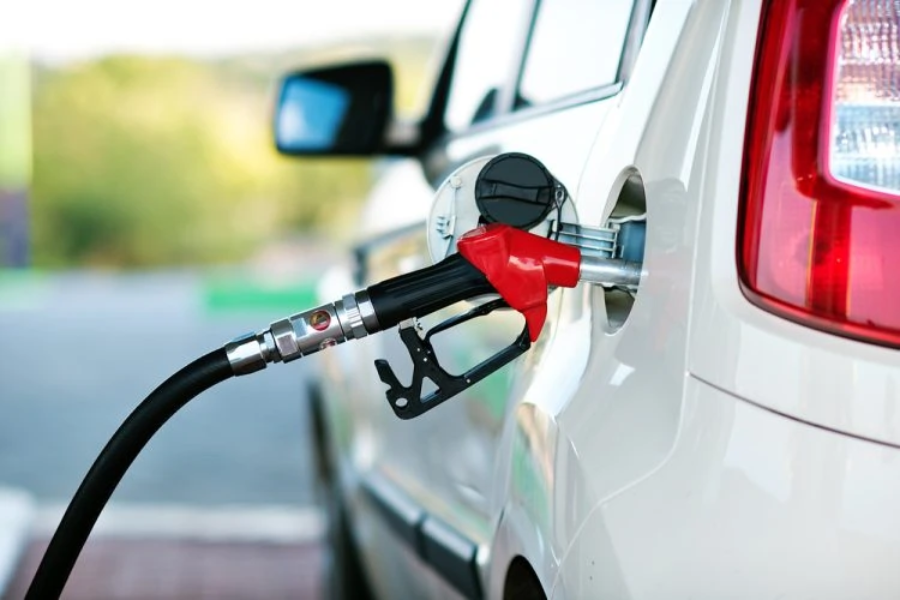Are Cadillacs Gas Guzzlers? A Deep Dive into Cadillac’s Fuel Efficiency
When we think about luxury cars, Cadillacs naturally come to mind as a symbol of American elegance and high-end automotive engineering. Yet, for many potential buyers and car enthusiasts, one common question often arises: “Are Cadillacs gas guzzlers?” This article will break down everything you need to know about Cadillac’s fuel efficiency, busting myths along the way and offering insights to help you understand the true fuel economy of modern Cadillacs.
Understanding the Fuel Efficiency of Cadillacs
Cadillac has come a long way in terms of fuel efficiency, making strides that contrast sharply with the gas-guzzling reputation of its earlier models. Over the years, the brand has prioritized improving fuel economy, which has led to the introduction of more fuel-efficient models that still capture Cadillac’s signature style and performance.
Today’s Cadillacs include a variety of fuel-saving features, such as turbocharged engines and hybrid options, that allow drivers to enjoy the luxury of a Cadillac without breaking the bank at the pump. Models like the Cadillac CT5, for example, now achieve impressive MPG ratings, reaching up to 32 miles per gallon on the highway. This kind of efficiency would have been unimaginable in the days of classic Cadillacs, highlighting how the brand has evolved to meet the expectations of today’s eco-conscious drivers.
The Impact of Engine Type on Fuel Consumption
Engine type is one of the biggest determinants of fuel efficiency in any car, and Cadillacs are no exception. Historically, Cadillac vehicles were known for their powerful V8 engines, which delivered impressive performance but lacked efficiency. While V8 engines are still available in some models, today’s lineup also includes more fuel-efficient options, such as four-cylinder and V6 engines that offer a balance of power and economy.
For instance, the Cadillac XT4 compact SUV is equipped with a turbocharged four-cylinder engine. This engine strikes a balance between power and fuel economy, making it suitable for city driving as well as long highway trips. Drivers get the power they expect from a Cadillac but with reduced fuel consumption, thanks to the lighter, more efficient engine.
Hybrid and Electric Options
With sustainability on the rise, Cadillac has responded by expanding into the hybrid and electric vehicle market. One prime example of this shift is the Cadillac Lyriq, an all-electric SUV that offers a range of over 300 miles on a single charge. The Lyriq stands as proof that luxury and fuel efficiency can coexist, allowing Cadillac drivers to reduce their carbon footprint without sacrificing performance or style.
For those looking for a hybrid option, Cadillac also offers models like the Escalade Hybrid, which pairs a traditional combustion engine with an electric motor to improve fuel economy. These hybrid and electric Cadillacs are ideal for drivers who want the classic Cadillac experience but with a greener edge, making them a solid choice for environmentally-conscious consumers.
Real-World Fuel Efficiency vs. Manufacturer Claims
It’s important to note that while manufacturer MPG ratings provide a useful reference, real-world conditions can cause these figures to vary. Fuel efficiency can be impacted by several factors, including driving habits, terrain, weather, and even maintenance.
Cadillac owners who adopt fuel-efficient driving practices—such as maintaining steady speeds and avoiding aggressive acceleration—can often get more miles per gallon than those who drive erratically. Additionally, regular maintenance, like oil changes and tire pressure checks, can further optimize fuel efficiency, helping Cadillac owners save on fuel costs over time.
Comparing Cadillacs to Other Luxury Brands
When assessing Cadillac’s fuel efficiency, it’s useful to consider how it stacks up against other luxury brands. Many manufacturers, such as BMW and Mercedes-Benz, now offer hybrid and diesel options to appeal to fuel-conscious buyers. In head-to-head comparisons, Cadillacs hold their own in terms of fuel efficiency.
For example, the Cadillac XT5 midsize SUV delivers around 26 MPG on the highway, which is competitive with similar models from brands like Audi and Lexus. This shows that Cadillac has kept up with the fuel efficiency trends in the luxury market while still providing the power and prestige expected of the brand.
The Role of Driving Conditions
Driving conditions can also have a significant impact on a vehicle’s fuel economy. Like any other car, Cadillacs perform differently in city versus highway settings. City driving, with frequent stops and starts, consumes more fuel, but Cadillac has equipped many of its vehicles with start-stop systems to help minimize fuel use in urban environments. This technology automatically shuts off the engine when idling and turns it back on when the driver is ready to move, helping conserve fuel in stop-and-go traffic.
On the open road, Cadillacs reach their peak fuel efficiency, especially when using cruise control, which minimizes unnecessary acceleration. The aerodynamic design of newer models also plays a role, reducing drag and enhancing fuel economy on the highway.
Technological Advancements in Fuel Efficiency
Cadillac has incorporated several advanced technologies to boost fuel efficiency across its models. For instance, Active Fuel Management (AFM) deactivates engine cylinders when full power is not necessary, conserving fuel during low-load driving conditions. In addition, turbocharging technology provides drivers with the power of a larger engine without requiring as much fuel, making for a more efficient driving experience.
Cadillac has also shifted to using lighter materials in vehicle construction, which helps reduce overall weight and fuel consumption. These innovations show Cadillac’s commitment to providing an efficient yet luxurious driving experience.
The Cost of Ownership
Fuel efficiency is only one factor in the total cost of owning a Cadillac. Other considerations, such as maintenance, insurance, and depreciation, also come into play. While luxury cars like Cadillacs may have higher maintenance costs compared to non-luxury vehicles, the fuel efficiency improvements of modern models can help offset some of these expenses.
Owners of hybrid and electric Cadillacs may also benefit from tax incentives and rebates, further reducing the overall cost of ownership. Additionally, Cadillac offers comprehensive warranty programs that provide peace of mind and cover unexpected costs, making ownership more manageable.
Environmental Impact
For those mindful of their environmental impact, Cadillac’s new hybrid and electric models offer a greener alternative to traditional gas-powered vehicles. In addition to the benefits of lower greenhouse gas emissions, Cadillac’s manufacturing process now incorporates more sustainable materials, which helps minimize the environmental impact of each vehicle.
By choosing a fuel-efficient Cadillac, consumers not only save on gas but also support the broader shift toward sustainability in the automotive industry. This can be a deciding factor for buyers who value environmental responsibility along with luxury and performance.
Resale Value and Fuel Efficiency
Fuel efficiency can also positively impact a car’s resale value. As fuel prices rise and environmental awareness grows, cars with better fuel economy tend to hold their value better in the used car market. Buyers are increasingly drawn to vehicles with good MPG ratings, knowing they offer long-term savings and reduce environmental impact.
Cadillacs with impressive MPG figures often attract more interest, enhancing their resale value. Opting for a fuel-efficient model means Cadillac owners can enjoy luxury and performance while also securing a better return on their investment.
Misconceptions About Cadillac Fuel Efficiency
Despite Cadillac’s advancements in fuel efficiency, outdated misconceptions persist. Many still associate Cadillacs with poor gas mileage due to the brand’s legacy of large, powerful engines. It’s essential to recognize that Cadillac has made significant strides in improving fuel economy, particularly in the past decade.
For potential buyers, hearing firsthand testimonials from current Cadillac owners can be enlightening. Real stories about the fuel efficiency of newer models can help to counter misconceptions and encourage a more accurate understanding of Cadillac’s modern lineup.
Making an Informed Decision
When considering a Cadillac, it’s important to evaluate fuel efficiency alongside other factors like comfort, performance, and style. Prospective buyers can benefit from researching various models, reading reviews, and consulting with Cadillac dealerships to gather insights.
Taking a test drive and examining factors like driving comfort, fuel efficiency, and overall fit can help prospective buyers make a well-rounded decision. In the end, the choice to purchase a Cadillac should be based on a complete understanding of what each model offers, both in terms of luxury and fuel economy.
Conclusion
To answer the question, “Are Cadillacs gas guzzlers?”—the reality is more complex than a simple yes or no. While older Cadillacs may have struggled with fuel efficiency, today’s models offer competitive MPG ratings and advanced features to help reduce fuel consumption.
Cadillac’s hybrid and electric options demonstrate that luxury and fuel efficiency can go hand-in-hand. By understanding the various factors that influence fuel economy, from engine type to driving conditions, buyers can make an informed choice that aligns with their priorities.
For those who value both performance and eco-conscious driving, Cadillac’s lineup presents a versatile and sustainable option, proving that luxury and efficiency are not mutually exclusive.
Facts
- Improved Fuel Efficiency: Cadillac’s modern lineup includes models with impressive fuel economy, such as the CT5, which reaches up to 32 MPG on highways.
- Diverse Engine Options: Cadillac offers four-cylinder, V6, and V8 engines, allowing buyers to choose between performance and fuel efficiency.
- Hybrid and Electric Models: Cadillac has introduced hybrid models like the Escalade Hybrid and fully electric options such as the Cadillac Lyriq.
- Fuel-Saving Features: Modern Cadillacs come with features like Active Fuel Management, start-stop technology, and turbocharging, all of which enhance fuel efficiency.
- Competitive in Luxury Segment: Cadillac’s fuel efficiency is on par with other luxury brands, offering MPG ratings that match or surpass competitors like Audi and Lexus.
FAQs
1. Are Cadillacs still considered gas guzzlers?
- Older models were known for poor fuel efficiency, but modern Cadillacs are much more fuel-efficient, with options like the CT5 reaching 32 MPG on the highway.
2. Does Cadillac offer any hybrid or electric models?
- Yes, Cadillac offers hybrid options like the Escalade Hybrid and a fully electric model, the Cadillac Lyriq, which has over 300 miles of range per charge.
3. What features help improve Cadillac’s fuel efficiency?
- Features like turbocharging, start-stop systems, and Active Fuel Management conserve fuel by deactivating cylinders when full power isn’t required.
4. How does Cadillac’s fuel efficiency compare to other luxury brands?
- Cadillac’s MPG ratings are competitive with other luxury brands, matching or exceeding brands like Audi, BMW, and Lexus.
5. What Cadillac models are most fuel-efficient?
- The Cadillac CT5 and XT4 are some of the most fuel-efficient models, with the CT5 achieving up to 32 MPG on the highway.






